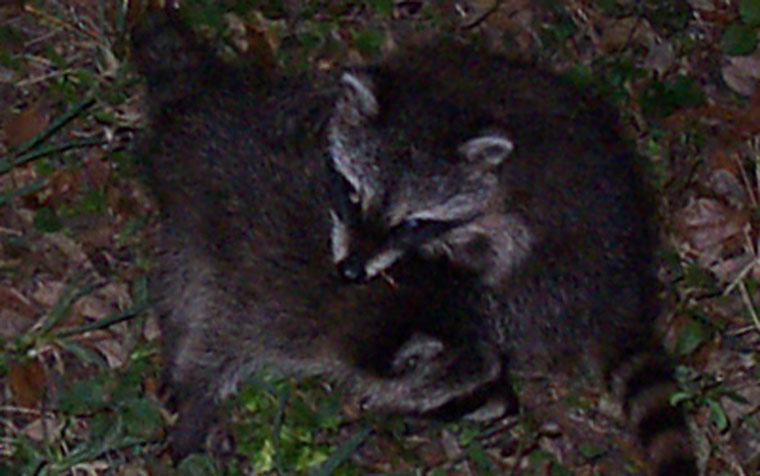-
info@aaanimalcontrol.com
Call us for help in your town
Humane Wildlife Education
Do Raccoons Actually Hibernate?
Need raccoon removal in your hometown? We service over 500 USA locations! Click here to hire us in your town and check prices - updated for year 2020.
You don’t generally see a lot of raccoons wandering around during the winter, and that leads many people to believe that they are creatures that hibernate for the winter. To some extent they do, but not in the same way that bears and other hibernating creatures do.

The raccoon’s main diet during the warmer, summer months generally includes insects, berries, frogs, fish, nuts, fruits, vegetables and flowers. During the winter these foods are not so readily available. If the raccoon were to go out looking for them, they would go hungry. They would also end up wasting much more energy than they would have found in food. It’s pretty difficult to find something to eat when everything around you is snowy and white.
Raccoons in warmer climates tend to do quite well during the winter, and that’s definitely the case for those living in highly populated human areas. Trash cans provide more food than they could ever expect to find, and humans tend NOT to check their buildings during the colder months, which just so happens to be the exact time that these raccoons (and other wild animals) are looking to take things inside.
Not only is finding food difficult in the great outdoors during the winter, but finding places to stay warm and dry is quite difficult also. Residential areas are often jam-packed with garbage bags - plenty of food, and also plenty of houses with outbuildings and garages - plenty of places to find shelter. Raccoons often break into residential homes and commercial properties, set up a nest, and stay there, all nice, warm and cosy until the weather brightens up again. they don’t hibernate for the entire winter, but they do choose to sleep a lot of it away. Why? Because being awake takes up too much energy. If they were awake, they’d need to go out hunting for food. This uses up energy, and their hunt might not even be successful. Instead, they fatten up throughout the spring, occasionally hoarding food if they can get away with it, and then survive on that, plus whatever they do manage to find on the streets, for winter.
It’s a hard life for a raccoon!
The weather will have a big impact on how the raccoon behaves during winter. If it is a mild one, the raccoon could very well survive in the great outdoors, living in tree hollows (or on your land somewhere), foraging for food and helping itself to the leftovers in your trash can.
If the weather isn’t favorable, however, the raccoon would much rather sleep away as much of the winter as it can. It’s not quiet hibernation, but sleeping away whole days at a time sure sounds better than having to get up every morning in that cold weather, doesn’t it?
For more information, you may want to click on one of these guides that I wrote:
How much does raccoon removal cost? - get the lowdown on prices.
How to get rid of raccoons - my main raccoon removal info guide.
Example raccoon trapping photographs - get do-it-yourself ideas.
Raccoon job blog - learn from great examples of raccoon jobs I've done.
raccoons in the attic
Do raccoons live alone or travel in packs?


















